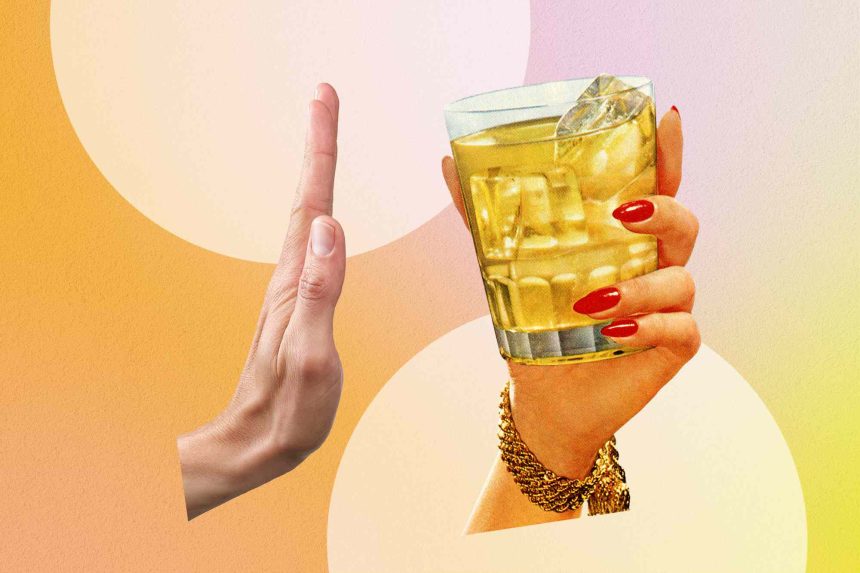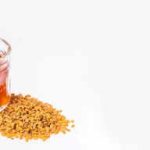For many people, sipping on a bold glass of wine at the end of a long day, enjoying an ice-cold beer while watching a sports game or enjoying a trendy cocktail at happy hour may be part of a daily routine. Yet, going alcohol-free has been increasing in popularity.
Whether you’re opting in for Dry January or Sober October, swapping out your cocktail for a mocktail may be a better choice if you are trying to manage your weight, feel more energized, or simply want to lead a healthier lifestyle.
Why? Even though you may initially feel energized after a drink, alcohol is a depressant, meaning that ingesting it can slow brain function. Heavy drinking over time can lead to some pretty severe outcomes, ranging from memory loss to heart disease, liver disease and cancer.
How Much Alcohol Is Too Much?
The Centers for Disease Control and Prevention recommends that adults 21 years old and older who choose to drink should do so in moderation by sticking to no more than two daily drinks for males, or one drink per day for females.
So, if you are ready to trade in your classic martini for a spirit-free version or a zero-ABV (alcohol by volume) beer instead of your classic suds, read on to learn what may happen to your body if you make this simple change.
You May Lose Weight
When people want to lose weight, skipping their favorite sugary foods or hitting the gym a bit more is often the first step. But since alcohol provides 7 calories per gram (compared to 4 calories/gram for carbs and protein), avoiding the booze can help reduce weight, mainly if your drink of choice contains a large volume of alcohol.
While some studies have not found an association between body mass index and alcohol use, alcohol has some significant effects on the body that can impact your metabolism and ability to lose or maintain weight. Alcohol can negatively impact our quality of sleep and cause us to make poor food choices—factors that can cause weight gain—and if your taste buds favor alcoholic drinks that include high-calorie sugary mixers (we’re looking at you, piña coladas), skipping these drinks can have a greater impact.
You May Sleep Better
Although alcohol can have a relaxing effect and increase a person’s ability to fall asleep, it can also adversely affect sleep. Consuming excessive amounts of alcohol increases your risk of suffering from poor sleep quality. It can even result in short sleep duration and snoring.
One reason this may occur is that alcohol can reduce melatonin secretion in the brain. Since melatonin is a hormone that plays a pivotal role in a person’s sleep-wake cycle, also known as circadian rhythm, impacting its secretion can wreak havoc on a person’s ability to get some quality shut-eye.
Another reason a person who’s been drinking alcohol may fall asleep quickly and then be awake during the wee hours may be the alcohol’s negative effect on the GABA neurotransmitter. GABA is a chemical naturally produced by the body that helps your mind relax and fall asleep. Finally, alcohol ingestion can negatively impact the action of dopamine—a neurotransmitter and hormone that also affects your sleep.
You May Better Support Your Immune System
Bumping up our vitamin C intake, washing our hands and getting quality sleep are all tried-and-true ways to help us stay cold and flu-free (although nothing is guaranteed). But less-known is that drinking too much alcohol isn’t doing our immune system any favors and can actually reduce how well it functions.
Among the many ways that alcohol can suppress the immune system, booze can negatively impact the balance of the gut microbiota. Poor gut health and microbiota imbalance can ultimately weaken one aspect of how our body protects us from illness.
You May Stay Better Hydrated
Alcohol consumption is known to increase our urine output, causing us to retain less fluid.
Drinking even small amounts of alcohol can have a temporary diuretic effect. “Alcohol causes antidiuretic hormone (ADH) levels to drop, and as a result, the kidneys produce more urine and retain less water,” Sal Raichbach, Psy.D., LCSW, chief of clinical compliance at Ambrosia Treatment Center, said. “When you stop drinking alcohol, you restore ADH levels to their natural state, and your kidneys expel the appropriate amount of water.” By retaining water and staying hydrated, your whole body will feel better.
“Our bodies are entirely dependent on water,” Raichbach said. “Every cell in our body uses water in one way or another. It’s essential for circulation, maintaining body temperature, and helps to get rid of waste. Without proper hydration, the heart must work harder to pump the same amount of blood, and your kidneys will eventually start to fail.”
You May Reduce Your Cancer Risk
Cancer risk can be increased because of several factors, some entirely out of our control, like genetics. But among the factors that are within our control, like diet and lifestyle choices, drinking alcohol may have a profound impact on our chances of developing cancer. Relative to those who have less than one drink per week, men who have two or more drinks per day increase their lifetime risk of cancer by 3.1%, and that number goes up to 5.3% for women.
Consuming high amounts of alcohol may increase the risk of developing seven different types of cancer—pharynx, larynx, esophageal, mouth, liver, colon and rectal, and breast cancers. Research has pointed out four possible ways that alcohol may increase your risk of cancer: damage to DNA, increasing oxidative stress, altering levels of hormones, and alcohol can lead to an increase in absorption of carcinogens, such as those from cigarettes.
The Bottom Line
If you are jumping on the alcohol-free trend and are trading in your glass of merlot for a pomegranate juice or your mug of beer for a glass of kombucha, your body may reap some major benefits simply by making that small swap. From sleeping better to supporting your immune system, there are some significant impacts that your body may experience by embarking on a booze-free journey. If you’re not ready to completely give up your spirits, know that reducing your alcohol intake can also have major health benefits.
So, have some fun trying out some mocktail recipes. From a booze-free mojito to a strawberry shrub mocktail, the options are endless. And who knows? You may just find a drink that you love even more than the go-to cocktail you’ve been drinking for years—and you may feel better after drinking it too!







